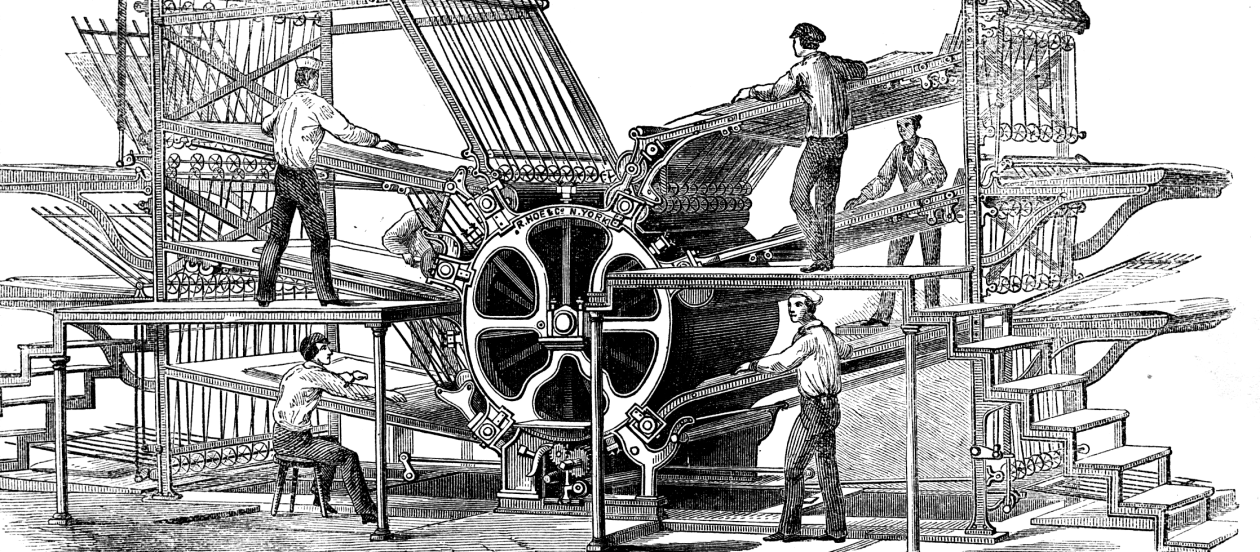by Zack Groff
 Martin Luther (1483-1546) gets a lot of press this time of year, and for good cause. We recognize him as the human instrument God was pleased to use to launch the Protestant Reformation. Something about him – his blunt and forceful personality, perhaps – evokes images of a hammer. In fact, the most celebrated moment in Luther’s biography is the (likely apocryphal) account of his swinging a hammer to nail his famous 95 Theses to the church door in Wittenberg on October 31, 1517.
Martin Luther (1483-1546) gets a lot of press this time of year, and for good cause. We recognize him as the human instrument God was pleased to use to launch the Protestant Reformation. Something about him – his blunt and forceful personality, perhaps – evokes images of a hammer. In fact, the most celebrated moment in Luther’s biography is the (likely apocryphal) account of his swinging a hammer to nail his famous 95 Theses to the church door in Wittenberg on October 31, 1517.
Whether Luther possessed a hammer-like personality or he used a literal hammer to reform the church is irrelevant. There is a better reason to associate Luther and his reform-minded proteges with a hammer motif, and it has to do with the divine hammer of God’s Word.
In Jeremiah 23:28-29, God declares, “The prophet who has a dream let him tell a dream; and he who has My word, let him speak My word faithfully. What is the chaff to the wheat?” says the LORD. “Is not My word like a fire?” says the LORD, “And like a hammer that breaks the rock in pieces?” The power of God’s Word – poignantly illustrated in these verses – has shaped every genuinely Christian treatise, publication, creed, and sermon ever published, proclaimed, recited, or confessed. It is on the sufficiency of God’s Word that Christianity stands or falls. The Protestant Reformers were first and foremost men of God’s Word.
Commenting on his role in instigating the Protestant Reformation, Luther confessed, “I simply taught, preached, wrote God’s Word: otherwise I did nothing…. I did nothing: the Word did it all…. I did nothing: I left it to the Word.” Luther did not so much downplay his part in the Reformation as he did magnify and exalt the might of God’s Word.
Such was the confidence of Luther’s contemporaries and pupils as well. To take one example, consider the following words from English Reformer William Tyndale (1490/4-1536), quoted by Greenville Presbyterian Theological Seminary Professor Dr. James McGoldrick in Luther’s English Connection.* In his Parable of the Wicked Mammon (1528), Tyndale exhorted his readers, “Seek the word of God in all things; and without the word of God do nothing, though it appear ever so glorious. Whatsoever is done without the word of God, that count idolatry.”
Tyndale’s words are but an echo of God’s Word in places such as Isaiah 8:20, “To the law and to the testimony! If they (those who are mediums and wizards, in verse 19) do not speak according to this word, it is because there is no light in them.” Our own Westminster Confession of Faith reflects the primacy of God’s Word for our faith and practice by opening with a chapter entitled, Of the Holy Scripture.
As you reflect on the anniversary of the first hammerfall of the Reformation, consider your allegiance. Do you turn to the Word of God with a posture of humble submission to Christ and reliance on His Spirit, regarding His Word as sufficient, authoritative, and powerful? Do you find relief and satisfaction in God’s Word for your every spiritual need? Do you trust God’s Word to shatter the rocks of remaining sin, temptation, and irrational terror in your life?
Tolle Lege! Take up and read the Word of God. In so doing, you will find life as God the Holy Spirit wields the Word as a sculptor’s hammer and chisel to shape your heart after the pattern of Christ.
* To read more about Martin Luther’s influence on the English Reformation (to which we Presbyterians are deeply indebted for our own Westminsterian theological heritage), visit gpts.edu/luthers-english-connection-mcgoldrick and get Dr. McGoldrick’s book from GPTS.
- We Become What We Worship - November 1, 2021
- Christ Our King - June 4, 2021
- The “Elements” of Saving Faith - April 5, 2021
